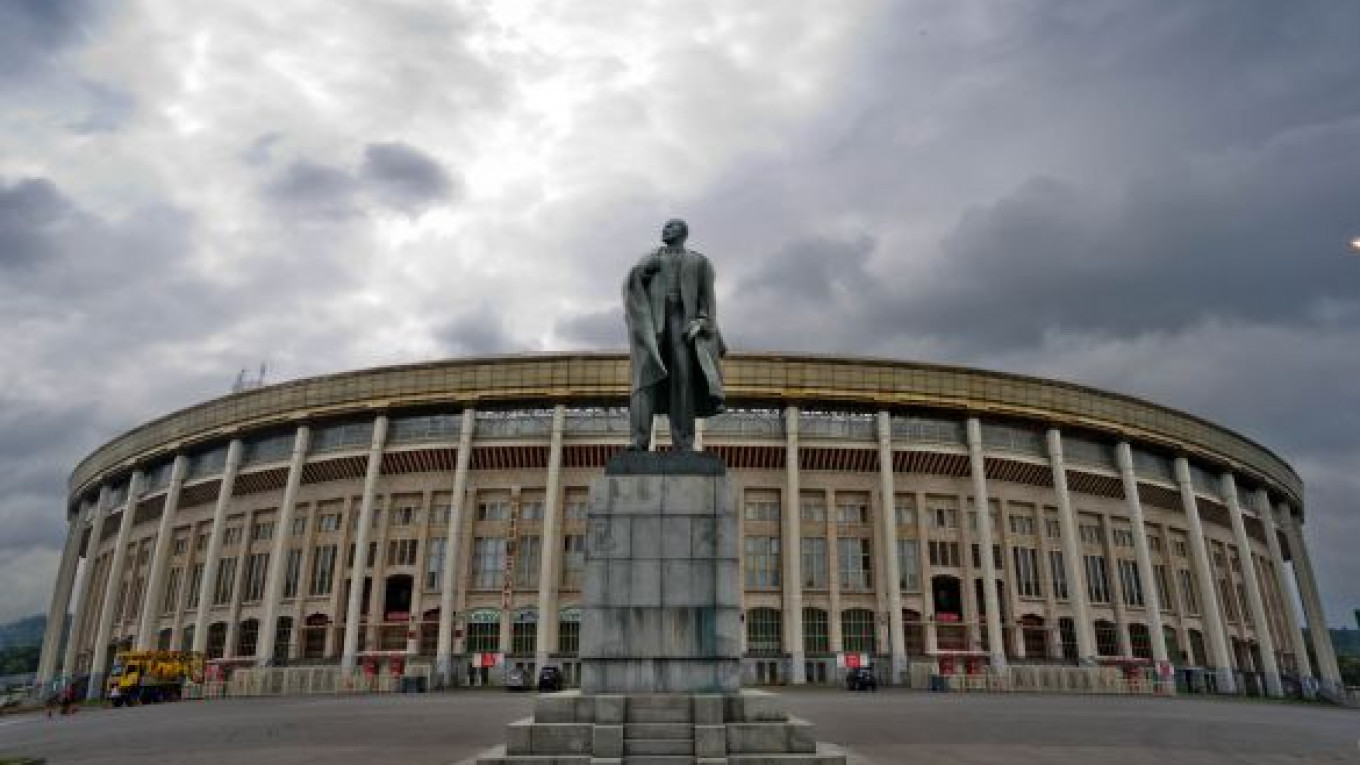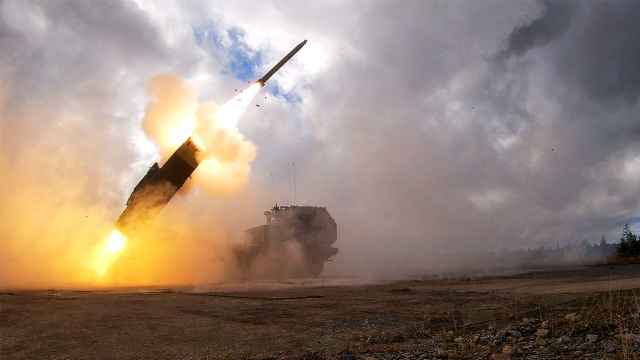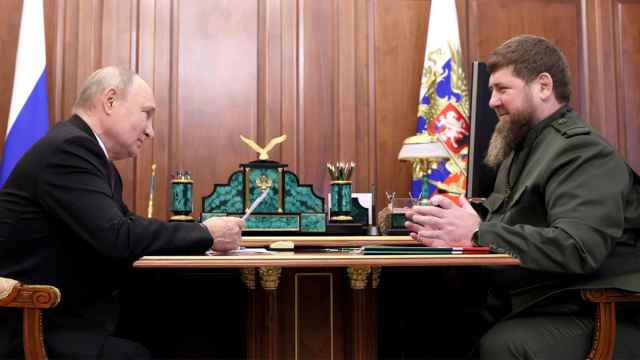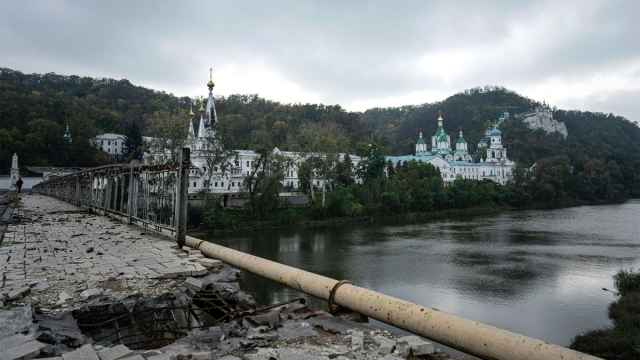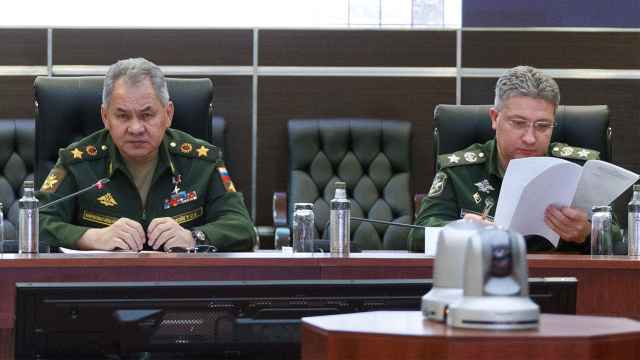Air quality in Beijing and London ruffled plenty of feathers among athletes and ecologists when the megapolises set out to host the Summer Olympic Games, but competitors arriving in Moscow for the IAAF World Championships do not appear to have the same worries about the Russian capital, even though it consistently ranks as one of the most polluted cities in the country.
Experts said this positive feedback showed how Moscow's air, while still containing multiple pollutants, is gradually improving.
"I haven't had any issues with [the air]," said U.S. athlete Michael Tinsley, who won silver in the 400 meters hurdles at the 2012 London Olympics. "I've been recovering well. I've been hitting all my times and intervals. So I couldn't say anything bad even if I wanted to."
Australian hurdler and Olympic gold medallist Sally Pearson, just off the plane in Moscow, said she also had not had concerns about what she had seen — and breathed in — since arriving.
"I don't really expect anything too terrible," she said. "I've stepped out of the hotel once and it seemed OK to me. I've been in worse countries before."
Anton Maximov, analyst at the Innovation Consulting Center which gives advice to potential home buyers, rated the cleanliness of the area near Luzhniki Stadium where the World Championships will take place from Aug. 10 to 18 as "a solid four out of five." It is cleaner than the other city areas because there are multiple parks and few industrial facilities nearby, he said.
"[Luzhniki Stadium] is located inside the bend of the Moscow River and is practically surrounded by parks," Maximov said. "The west and south-west administrative districts of Moscow are some of the most best in the city in terms of air pollution."
However, while the air quality near Luzhniki tends to be better than in the other Moscow districts — especially the southern parts that are downwind from the city's industry — it is still far from ideal.
Levels of the toxic compound nitrogen dioxide reached 0.29 milligrams per cubic meter Wednesday, according to data from the local station of Moscow's Ecological Monitoring service. Ozone levels peaked at 0.5 milligrams per cubic meter.
Both ozone and nitrogen dioxide have exceeded permissible, healthy levels in recent weeks, according to the service.
High air pollution is considered a potential health risk for all city dwellers, but poses an even bigger threat to athletes, particularly marathon runners, because of the quantity of air they have to take in during competitions.
"Runners think about this of course," said Dmitry Tarasov, head of the Moscow Marathon organizing committee. "They are worried about what they breathe. Believe me, I know a lot of people in Moscow who are forced to run in face masks."
But Tarasov said Moscow's air quality was still great compared to Beijing, where he went for the 2008 Olympic Games as part of the Russian delegation. Moscow-based ecology activist Alexander Nikolayev agreed.
"In comparison to Beijing, we are the Alps!" he said.
The Chinese authorities spent more than $10 billion on tackling the city's air pollution ahead of the Olympics. They closed down coal, steel and chemical factories or moved them to other cities, restricted road traffic during the games and tightened auto-emission standards.
The National Center for Atmospheric Research later found that traffic restrictions had helped to cut carbon dioxide emissions by 24,000 metric tons during the Olympics and Paralympics. The health of locals' hearts also improved at the time of the games — though it plunged soon afterwards, according to a study published in the May 2012 issue of the Journal of the American Medical Association.
The efforts to clean up London ahead in 2012 were also effective, though less drastic. The British capital ranked as one of the unhealthiest cities on the continent according the European City Ranking issued in 2011 as part of the "Soot-Free for the Climate" campaign. But by the time the games wrapped up, experts from the University of Manchester were calling London the least polluted Olympic host of recent years.
It is unlikely that Moscow's government will follow suit in using a sporting event to clean up air pollution, Nikolayev said. He has built his own device to track chemicals in Moscow's air and posts the findings on the website Moskovsky Vozdukh. The independent initiative has received attention from the media, but municipal officials ignore him.
"In London they have a very developed system of citizen monitoring," Nikolayev said. "Here, the government hasn't involved me in any way, but that's probably a good thing."
Tarasov said that he is already seeing improvements in Moscow's ecology as the city becomes cleaner and greener, regardless of international sporting events.
"The city is transforming significantly," Tarasov said. "We see how it is becoming more green than before. I would rank its ecology as a 3.5 to a four out of five."
Contact the author at e.smirnova@imedia.ru


